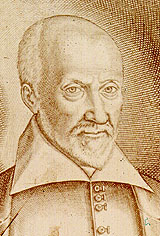A Quote by Ricardo Reis
Wise is the man who contents himself with the spectacle of the world.
Related Quotes
When you sailors see the haven before you, though you were mightily troubled before you could see any land, yet when you come near the shore and can see a certain land-mark, that contents you greatly. A godly man, in the midst of the waves and storms that he meets with, can see the glory of heaven before him and so contents himself. One drop of the sweetness of heaven is enough to take away all the sourness and bitterness of all the afflictions in the world.
Much has been said of the loneliness of wisdom, and how much the Truth seeker becomes a pilgrim wandering from star to star. To the ignorant, the wise man is lonely because he abides in distant heights of the mind. But the wise man himself does not feel lonely. Wisdom brings him nearer to life; closer to the heart of the world than the foolish man can ever be. Bookishness may lead to loneliness, and scholarship may end in a battle of beliefs, but the wise man gazing off into space sees not an emptiness, but a space full of life, truth, and law.



































